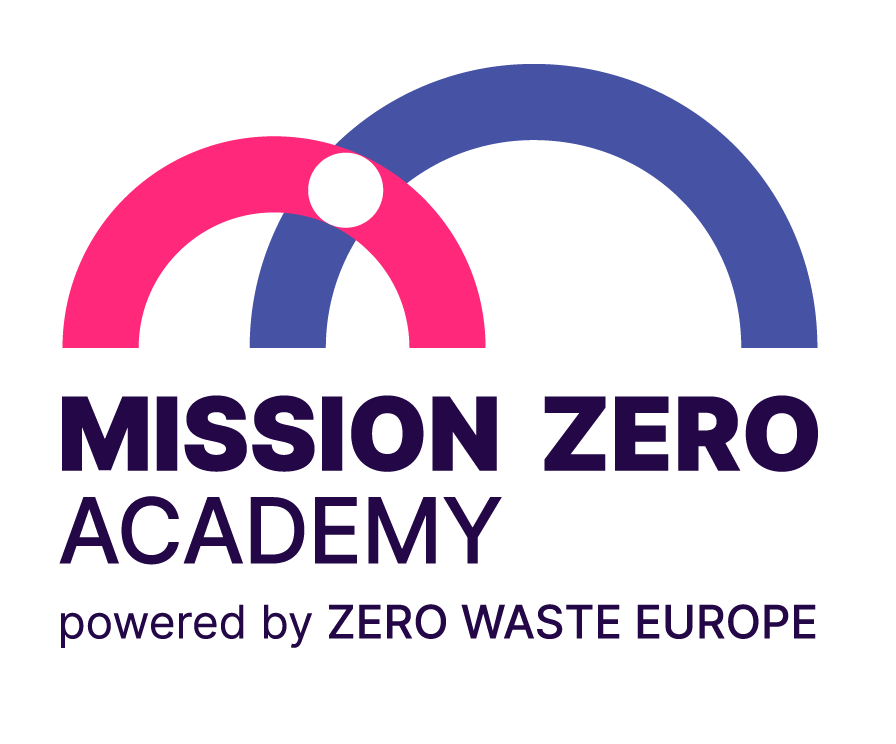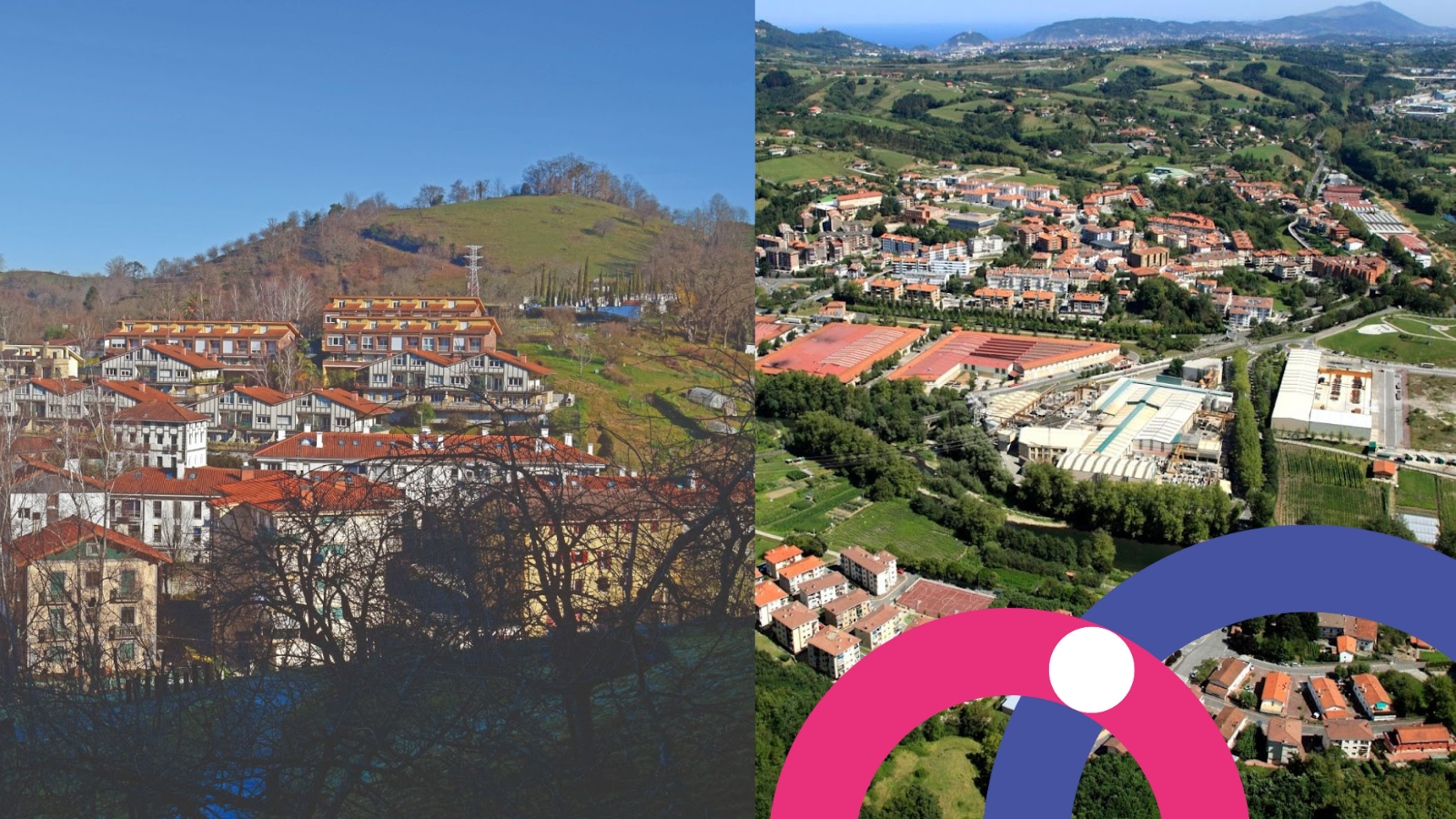Brussels, 3 April 2023
After its official commitment to become Zero Waste municipalities, Usurbil and Astigarraga, in the Basque Country, have become Zero Waste Certified Cities with accreditations of 4 stars and 2, respectively.
The Zero Waste Cities Certification is a European certification standard evaluated by third parties. Created by Zero Waste Europe (ZWE), and run by its sister organization Mission Zero Academy (MiZA), its goal is to accelerate the transition to zero waste and the implementation of the circular economy in European towns and cities, at the local level.
Usurbil, a small town of around 5,000 inhabitants located in the province of Gipuzkoa, was the first in the Basque Country to implement actions to improve waste management. It already implemented the ‘door-to-door’ waste collection system in 2009 with excellent results. Some of the challenges that arise are:
- Expand a decentralised composting;
- Introduce environmental clauses in public procurement processes;
- Create a more appropriate measuring instrument that associates the reduction of waste with the application of complete measures.
Agurtzane Solaberrieta Mesa, Mayor of Usurbil, highlighted:“It values the daily work that is done in Usurbil through a European certificate that allows comparing realities as diverse as Kiel (Germany), Capannori (Italy) or Usurbil. Beyond the collection system, this certificate gives value to the results of our waste management in Usurbil, and it is a matter of pride to receive a European certificate with the highest score to date”.
Ibon Goikoetxea, environmental technician from the Usurbil City Council, said: “It is gratifying to obtain 4 stars in the most ambitious certificate that exists towards a zero waste model. It is an acknowledgment that endorses the progress made so far and indicates the path to follow.”
Rezero and Amigos de la Tierra were the organisations that carried out Usurbil’s certification audit. Rosa Garcia, director of Rezero, highlighted Usurbil’s “excellent work”: “Usurbil’s history is an excellent example of a municipality that has managed to involve all sectors in a transversal way in waste prevention. In this municipality, the local population produces 25 kilos of residual waste refuse per year, and the average in Spain is 500 kilos per year. This is achieved through the generalisation of community and self-composting, the introduction of payment in kind in commercial and industrial estates, reducing the use of single-use containers, etc. We are very happy to have been able to verify that the zero waste measures have caused such a waste management change in the municipalities.”
Astigarraga is a municipality of about 7,000 inhabitants that has numerous measures for the prevention, reuse and recycling of waste – among them, the treatment of organic by household compost and community compost. But the Astigarraga City Council wants to intensify the reduction and prevention of waste by strenghtening the first link in the waste generation chain. As such, it was with great satisfaction that the City Council has received the news of the Zero Waste Cities Certification.
Some of the measures that the municipality needs to undertake include:
- Carrying out an own waste prevention and management plan with detailed objectives, ensuring that ambitious instruments such as ‘Pay-As-You-Throw’ are applied, and that the participation of local interest groups is taken into account.
- Expanding decentralised composting in its different forms to treat the largest amount of organic waste possible.
- Applying ‘Pay-As-You-Throw’ in household collection, which will result in the reduction of the residual waste and in the increase of recyclables.
- Analysing the reduction of the municipality’s carbon footprint by applying zero waste management measures and making the results public.
Kaisa Karjalainen, Coordinator of the Mission Zero Academy, stated: “Usurbil and Astigarraga both have a long history of transitioning to zero waste. Getting certified further proves their impressive results, and confirms that they are on the right track. It also gives them a clear trajectory for future improvements. We are delighted to see more municipalities from the Basque Country joining the zero waste cities network – and we do need to make a special praise to Usurbil for achieving the highest certification rate attributed to so far by MiZA.”
The Zero Waste Certification is made up of 5 steps: (i) the expression of interest in being Zero Waste by the municipality, (ii) the acquisition of the commitment to be Zero Waste – candidacy phase, (iii) the implementation of this system, (iv) its certification and (v) the performance of annual improvements. The overcoming of each of these steps is given with the support and advice of expert entities in the fields of waste and resource management. The evaluation for certification is developed around a scoring system, which includes mandatory criteria and optional scoring criteria.
Scoring criteria are scored based on the ambition and impact of each implemented policy. The sum of the points defines the level of certification of the municipality and its subsequent number of ‘stars’.
Subsequent to Certification, municipalities must monitor their activity and make annual improvements to enhance the results achieved. Every 3 years they are subject to new audits.
Do you want to know more about the Certification of Zero Waste Cities and Towns? Discover more details about it here.





